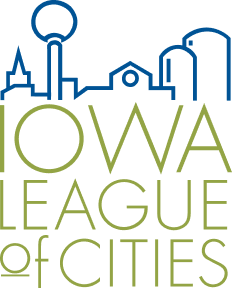Many organizations from both the private and public sectors run a combined charities campaign. In the public sector, campaigns occur among federal, state and local government employers. Workplace giving campaigns are considered a key element of an employer’s community relations and employee engagement strategy. The challenge for all employers is to allow employees to engage in meaningful giving while following applicable regulations and not becoming overly burdensome to the organization.
Private sector companies typically offer several options for employees to donate to charities through a deduction from their paychecks. State employees in Iowa have a specific law regarding such workplace giving programs. For cities, counties and school districts there is a different and more specific law governing charitable payroll deductions.
Code of Iowa Section 70A.15A allows public employers to “authorize deductions from the salaries or wages of its employees” for the benefit of “an eligible charitable organization.” A public employer is defined as the governing bodies of school districts, counties and cities.
Although public employers are not required to allow any charitable payroll deductions, most public and private employers have concluded that this type of workplace giving program allows their employees to easily and effectively donate to a variety of charities.
Eligible Charitable Organizations
An eligible charitable organization is defined in Code Section 70A.15A as a not-for-profit federation of health and human services, social welfare, or environmental agencies or associations, which meets the following conditions:
- The organization is tax exempt under Internal Revenue Code Section 501(c)(3)
- Contributions to the organization are deductible under Internal Revenue Code Section 170
- The organization has had an office in Iowa for the last five years
- The organization must represent at least 10 health and human services, social welfare or environmental agencies or associations that are located in Iowa
- The organization must be governed by an active, voluntary board, which exercises administrative control over the organization
- The organization must not be a charitable foundation
- The organization must be registered with the Iowa Secretary of State’s office
Employee Authorization
The authorization from each employee for such charitable deduction must be in writing, signed by the employee, state the amount specified for payment to the eligible charitable organization, and must be directed to and filed with the treasurer or the official in charge of the payroll system. The employee must be permitted to withdraw his or her authorization at any time by submitting a written notification of withdrawal to the person in charge of the payroll system.
Regulations for City Charitable Campaigns
For cities that wish to conduct a charitable giving campaign, Code of Iowa Section 70A.15A contains a specific requirement concerning the scope of the campaign. If a public employer authorizes deductions for any eligible charitable organization, the public employer shall ensure that its employees are permitted to authorize a deduction to any eligible charitable organization as is defined above. A public employer is prohibited from denying a request for a payroll deduction for one eligible charitable organization if it allows payroll deductions for any other eligible charitable organizations.
Three organizations currently meet the definition of eligible charitable organization – Community Health Charities Iowa, Iowa Shares and the United Way. If only one or two of these organizations are currently eligible to receive donations from your employees under your city’s charitable giving program, you need to make contact with the ineligible organization to add them to your campaign.
With only three eligible charitable organizations, city employees can be offered a variety of giving choices without becoming overly burdensome to the city payroll system. If you have a question as to whether a particular entity is qualified as an eligible charitable organization, please contact the Iowa Secretary of State’s office.






